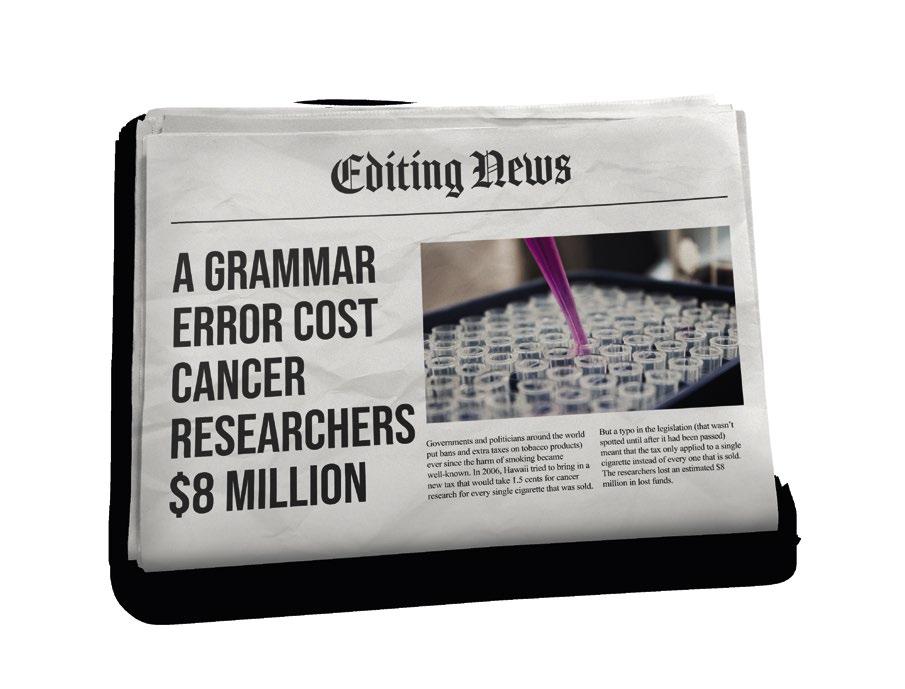
2024 Volume I
BRITISH COLUMBIA’S MAGAZINE FOR WRITERS
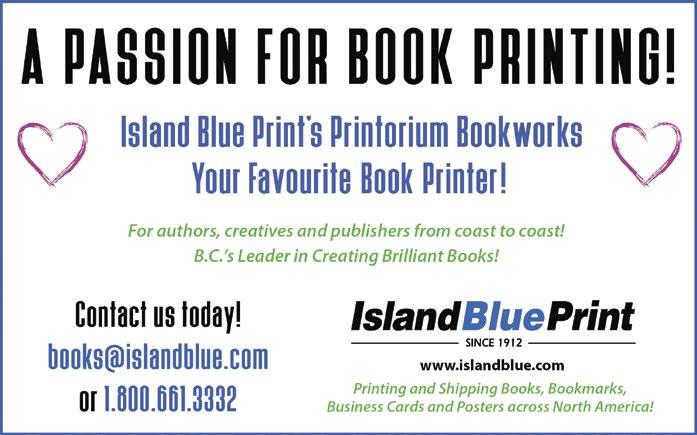

Commit these deadlines to memory
November 1, 2024
Open Season Awards | $6000
Three writers split the winnings
February 1, 2025
Long Poem Prize | $2500
Two winners split the prize
May 1, 2025
Far Horizons Award for Short Fiction | $1250
One winner takes the prize
malahatreview.ca
malahat@uvic.ca
PRIZE MONEY $1250 ENTRY DEADLINE August 1, 2024 ENTRY FEE $35 wordworks | 2024 Volume 1
Constance Rooke Creative Nonfiction Prize



1 2024 Volume 1 | wordworks Letter from the editor 3 Letter from the executive director 3 From cottage to castle: Wild and wonderful writing retreats 4 Open the door to better reading—and more powerful writing 7 Becoming a stand-up Canadian: A new Canadian writes her funny 8 Opening doors for healing 10 Breaking in 12 Collaborative writing: Opening doors through the joy of shared creativity 14 Beyond the boundaries: Unraveling the mysteries of my Jewish history 16 Creating and finding writerly connection… in a brewery! 18 The fine art of accidentally falling through doors of opportunity 20 Member Milestones 23 Launched! 24 The last word: The hallway of locked doors 28
this issue: opening doors
Cover image: Doors of Victoria (BC), ink and watercolour, Andie Laf Designs. Instagram: @andie.laf.designs
WordWorks is published by
THE FEDERATION OF BC WRITERS PO Box 3503, Courtenay, BC V9N 6Z8 www.bcwriters.ca hello@bcwriters.ca | wordworks@bcwriters.ca
Copyrights remain with the copyright holders. All other work © 2024 The Federation of BC Writers. All Rights Reserved.
ISSN: 0843-1329
WordWorks is provided three times per year to FBCW members and to selected markets. It is available on our website at bcwriters.ca and in libraries and schools across BC and the Yukon.
FBCW Annual Membership Rates:
Regular: $80 | Senior: $45
Youth/Students: $25 | Accessibility: $45
FBCW BOARD OF DIRECTORS:
Katherine Wagner, Greg Blanchette, Suzanne Venuta, Wiley Wei-Chiun Ho, Craig Copland, Genevieve Wynand, Glenn Mori, Kirsten Mah
FBCW STAFF:
Bryan Mortensen, Executive Director
Jacqueline Massey, Deputy Director
Rachel Dunstan Muller, Managing Editor, WordWorks and FBCW Press
Diana Skrepnyk, Design Director
Meaghan Hackinen, Writing Circle Coordinator
Jessica Cole, Community Engagement Associate
FBCW AMBASSADOR:
Christina Myers
EDITORIAL STAFF:
Rachel Dunstan Muller, Managing Editor
Diana Skrepnyk, Graphic Designer
Jessica Cole, Meaghan Hackinen, Cindi Jackson, Christina Myers, Copy Editors
Cindi Jackson, Jacqueline Massey, Proofreaders
WRITE FOR WORDWORKS:
Visit our submissions page at bcwriters.ca/submit.
ADVERTISING:
WordWorks advertises services and products of interest to writers. Contact jacqueline@bcwriters.ca.
ACKNOWLEDGEMENTS:
The Federation of British Columbia Writers functions on the unceded and ancestral territories of many Indigenous Peoples and cultures. As champions of language, we cherish the oral and written traditions of the Indigenous Peoples of this land. We commit to uplift the voices and stories of marginalized peoples and communities wherever we work.
We celebrate submissions from underrepresented communities and are actively seeking contributions from writers of all races, genders, sexualities, abilities, neurodiversities, religions, socioeconomic statuses, or immigration statuses. We encourage submissions from both published and emerging writers. We believe our strength as a community is in the breadth of our stories.
The FBCW gratefully acknowledges the support of the Province of BC, the BC Arts Council, the Canada Council for the Arts, the Government of Canada, and the Magazine Association of BC.


2 wordworks | 2024 Volume 1
Letter from the editor Letter from the executive director
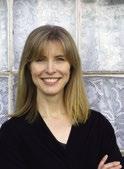
It takes courage to step through a new door— something the contributors to this issue of WordWorks have in abundance.
Writing has been their portal to new places, new connections, and some very unexpected opportunities.
Claire Finlayson could never have imagined that a book about her brother would lead to a shared project with a math genius serving time in prison—but sometimes the best doors take us by surprise. That was true for Sharon Easton, who allowed a few handwritten pages from her deceased mother to lead her on a lifechanging writing adventure. Andrew Buckley credits a deranged cat for launching his publishing career. For Pearlsha Quebral, a stand-up comedy workshop was the key to new friendships and a better understanding of her new country. For Petra Chambers, writing has been a path to healing.
As you face your own doors in 2024, I hope you find the articles in this issue as inspiring as I have. Try Christina Myers’ boundary-breaking exercises to reinvigorate your relationship with reading, then learn from Finnian Burnett as they explore the rewards of a collaborative writing partnership. Jann Everard and Sierra Skye Gemma have lots to share from their experience building a literary community.
Considering a writing retreat this year?
Shelley A. Leedahl has tips to help you find the right destination. Confronting too many closed doors? Check out the Darling Axe’s column on navigating rejection.
As the Federation’s new editor, I stepped through my own door this year. I had to take a deep breath before crossing the threshold, but once the first submissions hit my inbox, I knew I was in the right place. My only regret is that we didn’t have the space to print more!
Please stay in touch at rachel@bcwriters. Here’s to opening new doors.
Rachel Dunstan Muller Managing Editor and FBCW Press Director
Iam frequently reminded that change is part of the fabric of not-for-profit organisations, especially those serving the arts. It is with great happiness for Cadence Mandybura, but sadness for us, that I share that she has left her role as managing editor to pursue an exciting new adventure. She provided stability, guidance, and unparalleled talent while creating some truly outstanding issues of WordWorks.
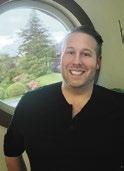
As you can tell by having this very issue in your hands (or on your screen), we have welcomed a familiar face to the role of managing editor. Many of you have interacted with Rachel Dunstan Muller in her previous role as community engagement coordinator.
Rachel jumped at the opportunity and started planning this issue long before her official start date. Ever a champion of fun and optimism on our team, it made sense that her first issue would be on the uplifting theme of “opening doors.”
We are also excited to share that Rachel’s role has evolved and expanded to being the managing editor of the new Federation of BC Writers Press. In this position, she will oversee our anthologies, magazines, digital articles, and more. I cannot wait to offer new opportunities for writers in our community under this broader framework.
By the time this issue reaches you, you will no doubt be aware that our 2024 BC Writers Summit is upon us. The theme this year is “for the love of genre,” which will also be the theme for volume two of WordWorks in 2024. We want to celebrate our love for all genres and to glean the best learnings from each to strengthen our works regardless of what realm our writing inhabits. Whether you consider yourself a genre writer or not, there will be something for everyone. We look forward to welcoming you all digitally to the summit in May!
Bryan Mortensen, Executive Director
3 2024 Volume 1 | wordworks
From cottage to castle: Wild and wonderful writing retreats
BY SHELLEY A. LEEDAHL
As a lifelong writer whose first of thirteen books was published in 1990—when my children were four and six—I’m a hardcore proponent of taking sabbaticals from the all-encompassing, everyday responsibilities of parenting and nine-tofive work to concentrate on one’s writing. It wasn't easy to leave the children at home and open the door to my institutional room at that first week-long retreat (in a former TB Sanitorium, rumoured to be haunted), but the amount, quality, and later-published writing I produced at "The San" proved that it was integral to carve out time for myself, or the writing simply wouldn’t get done. Apart from the children, the dog, the garden, and paid work, I was also earning an English degree in fits and starts. Once my initial book—A Few Words for January—was released, I began decades of presenting in schools, libraries, universities, bookstores, coffee
shops, a Save-On-Foods (the manager didn’t know what to do with me), and wherever else they’d have me across the Land of Living Skies (my home province of Saskatchewan) and beyond. Hectic doesn’t touch it.
As the children grew, so too did the length of my retreats— one week, two weeks, six—and the distance I’d travel for them.
After that first retreat door was opened, I was hooked. I began applying to writing or multi-disciplinary arts retreats annually, keeping these creative havens within my home province at first, and my multi-genre body of work—poetry, short stories, novels, children’s literature, essays—began to steadily grow. By day, I sequestered in a small room with my ideas, computer, and stacks of inspiring books. At mealtimes and during the evenings, I engaged with other writers and artists in stimulating conversations, hikes, dancing, and even one blood-sucking swim. (At Saskatchewan’s famed Emma Lake Writers’ and Artists’ Colony, more than one hundred leeches stuck to my inner thighs.) Parenting guilt? Perhaps, but I got over it. I produced reams. And my
4 wordworks | 2024 Volume 1

CV blossomed. It was a confidence boost and honour just to be accepted as a juried retreat participant.
The noisy wooden floors at Fort San in Saskatchewan’s Qu’Appelle Valley. A tiny, mousesmelling cabin I festooned in wildflowers at Emma Lake. There, between writing hours, I’d run 10 Ks down the sandy roads, play fiercely competitive games of Scrabble, and—at the nightly campfire—our voices lifted toward the stars.
In my monastically-sterile but entirely adequate room at St. Michael’s Retreat Centre (Muenster, Saskatchewan)—where chickadees eat seeds off palms—I wrote a sheaf of poems and more stories, and sold them to journals and CBC Radio.
As the children grew, so too did the length of my retreats—one week, two weeks, six—and the distance I’d travel for them. The Banff Centre for Arts and Creativity saw me through its doors on several occasions. I wrote in my Lloyd Hall room. I wrote in one of the architecturally-stunning Leighton Artists Studios, with elk striding past my windows. I wrote in a mountain-facing office while participating in the Canada-Mexico Writing/Photography Exchange in
2003. In 2002, the Canadian contingent of that group— five writers, five photographers—flew to Mérida, Mexico for five weeks of writing and collaborating in that Mayan/Colonial city. We lived in Hotel San Juan on Calle 55, near the cathedral, and wrote in our rooms, in coffee shops, in los parques. One of my projects involved interviewing Mexican couples I’d meet on the S-shaped park benches in that lively city, then fabricating stories about their passionate beginnings. Five of us—two Canadians, three Mexicans—drove to Celestún, where the flamingos were. We ate fish down-to-the-bones at seaside Progreso, and walked in Sisal’s bioluminescent water. Incredible to be having so much fun while simultaneously producing travel essays and a suite of poems that later appeared in my books.
But that’s how it happens, you see. While you’re living the adventure that life can be in a place not your own, you’re also feeding your mind and spirit, and creativity happens. Production. Occasionally, magic.
Time pushed on, and more books were released.
I learned about travel funding opportunities for international retreats and was fortunate to receive a few fellowships. I spent a month writing at Hawthornden Castle (heavy door, brass knob)
5 2024 Volume 1 | wordworks
in Scotland; six weeks in a cabin (screen door, screened-in porch, the woods often steeped in misty rain, cardinals, and fireflies) deep in rural Georgia at the Hambidge Centre of Arts and Sciences. I was awarded the Wallace Stegner Grant for the Arts—$500 and a month-long residency at the heralded writer’s quaint childhood home in Eastend, Saskatchewan. In 2019 I relished my month at Fundación Valparaíso, a former mill turned multi-disciplinary artist retreat centre in Mojacár, Spain. Each day I’d march up a heart-pumping hill between orange, olive, and almond orchards and see the glistening Mediterranean. The meals at FV were gourmet: quail eggs, calamari. The door to my room, “Cervantes,” was bordered by large paintings. Again, lifelong friends resulted: creators with insatiable curiosity and profound talent. So how does one find these retreats, and what funding is available? For regional retreats, I recommend checking provincial arts’ council websites to learn about retreat/fellowship opportunities. If one applies for an Individual Arts Grant through the BC Arts Council, for example, travel expenses “directly relevant to completing the project” are an eligible expense. See: bcartscouncil.ca. So go for it. Blow the doors wide open. If you’re serious about writing, make it a priority. You’re absolutely worth it. Apply for retreats across the province, the country, the pond. The doors you open will definitely change your writing— and may profoundly change your life.
Shelley A. Leedahl is a multi-genre writer and book reviewer in Ladysmith, BC. Recent titles include Go (poetry, Radiant Press 2022), The Moon Watched It All (illustrated, Red Deer Press 2019), Listen, Honey (short stories, DC Books 2012) and I Wasn’t Always Like This (essays, Signature Editions 2014). Her pastimes include running, cycling, and kayaking.
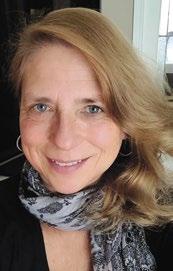

More resources for retreats
The Banff Centre has long been a magnet for retreat-seeking writers, including those desiring facilitated retreats. The Summer Residency is a 12-day self-directed retreat with options to participate in talks, performances, and consultations with guest faculty. Scholarships are available; non-refundable application fees apply. See: banffcentre.ca/programs/summerwriters-residency-2024/20240729. The Banff Centre’s website is also a terrific resource for finding retreatfunding opportunities. See: banffcentre. ca/funding-opportunities-artists.
The Canada Council for the Arts has significant travel funding available to writers through the Arts Abroad program. See: canadacouncil.ca/funding/ grants/arts-abroad. Writers may also include travel expenses in applications for Explore and Create grants.
I learned about major international retreats through word-of-mouth, but I’ve also used two comprehensive websites: TransArtists (transartists.org) and Artist Communities Alliance (artistcommunities. org/directory/residencies). Both offer excellent search tools for finding residencies of varying lengths with full or partial funding possibilities.
6 wordworks | 2024 Volume 1
Photo credit: Rita Taylor, Banff Centre
Open the door to better reading— and more powerful writing
BY CHRISTINA MYERS
Here are your instructions: head to your local library and wander into any row of the fiction section. Grab the second blue book from the left, top shelf. Yes, that’s right: the blue one. Then the first book on the bottom row with a “Canadian Author” sticker on its spine. Now, off to the graphic novels, the poetry, the memoirs, or the history books—choose a section at random—and find one written by an author with whom you share the same initials. Turn around and pull out the biggest (or the smallest) book at eye level. Finally, head over to whatever themed selection the library has on display, close your eyes, and point.
What you’ve gathered is a stack of reading that has zero curation or filtering; nothing in this pile might fit your usual preferences, your favourite genres, the types of stories that appeal to you. And you’re going to bring them home and read them. Sounds weird, right? It is—but it’s also an opportunity for better reading and, ultimately, more powerful writing. A few years ago, I discovered that my lifelong passion for books, along with my ability to inhale them at a dizzying pace, had almost disappeared. I had less free time to read, and when I found the time, I was easily distracted, or I’d lose interest.
In the coming months I read— devoured, inhaled, absorbed, and adored— books I’d probably never have picked up otherwise.
books based on random prerequisites (like being the second blue book from the left, top shelf). This became a regular habit, with varied methods of choosing titles. If there was a special display—local Indigenous authors, Black History Month, International Women’s Day, Diwali—I always grabbed a few from there, too. There was only one rule: I didn’t have to finish every single book, but I had to read at least ten pages, after which I could set it aside if I wasn’t sucked in. In the coming months I read— devoured, inhaled, absorbed, and adored—books I’d probably never have picked up otherwise. And even the ones I returned unfinished gave me glimpses into fascinating ideas, worlds, characters, and concepts. But there was an unexpected bonus: it also improved my writing, which had fallen into its own rut. Reading outside my usual genres and styles opened the door for new inspiration and more creativity in my own work. And I believe it will do the same for you—if you’re willing to pull down that blue book, second from the left—and give it a shot.
In retrospect, I was burnt out by the combination of being a busy parent with a busy career in a busy world. Compounding this, I was living through the stress of a global pandemic, and I had an evershorter attention span thanks to the endless stream of information on my smartphone. I also had some strongly held beliefs about what I liked to read—and worse, what I thought I should read.
On a whim, after a morning of writing in the library, I wandered into the fiction section and started choosing
Christina Myers is a writer, editor, and former journalist, and the author of Halfway Home: Thoughts from Midlife (House of Anansi Press 2024) and the novel The List of Last Chances (Caitlin Press 2021), which won the Canadian Book Club Award for fiction. She is a member of Da’naxda’xw First Nation, grew up all over Canada, and now lives in Surrey.
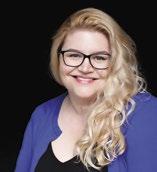
7 2024 Volume 1 | wordworks

Becoming a stand-up Canadian: A new Canadian writes her funny
BY PEARLSHA ABUBAKAR-QUEBRAL
I
love Canada! There’s free education, free health care— and every corner has a free mattress!
This was a joke from a stand-up comedy set that I performed in front of my very first Canadian audience some time ago—and like me, an immigrant from the Philippines, the joke landed successfully.
Achieving any measure of success on any kind of centre stage in the West is a big deal for us Filipinos. If someone makes it in the US or Canada, that person is not so much celebrated as vicariously experienced.
So that’s how more than two hundred of my friends and family were able to come to Canada legally for free when they viewed my very first standup performance on YouTube. That’s more than two hundred used mattresses off the streets!
Found it funny? You must be Canadian. Canadians are nice. So nice that they can withstand bone-crushing cold snaps, nightmarish wildfires, and corny immigrants!
When I attended Jan Bannister’s stand-up comedy workshop in the summer of 2022, I knew right away that this landed immigrant was in the perfect place to get to know Canadians up close and personal.
Jan and my classmates were not nice. They were VERY nice. Jan inspired us to write from the heart and commit to our material. She set up the workshop so we could write our sets together in one place over four weeks and give each other feedback. I’ll never forget Matt as he lamented over failing at his business despite being a privileged white man; Nicole’s “hot COVID body” and CrossFit being another word for “dying for other people’s sins”; Stef wondering why “in every single apartment you’ve ever lived in, there’s someone who lives upstairs that periodically drops a single bean”; Paul’s animated act-out of his Six Flags roller coaster ride on the Sky Train; and Ben explaining that in his culture, “we eat the whole animal.”
What follows is my attempt to distil the lessons I learned from Jan’s workshop, as well as from a lifetime
8 wordworks | 2024 Volume 1
of admiring and observing this uniquely Western art form being practised by talented comics.
1. Write, write, write. Jan could always tell when we hadn’t spent enough time working on our set. While examples of writing prompts abound, what I found particularly helpful was the twelveminute automatic writing exercise she made us do. I was able to extract nuggets of comedy gold from that one and turn it into my final set.
2. Read the room. Want to let loose your dark, polarising comedy upon the world? At the very least, connect first to your audience (or “the room” in comedy). Get their attention with a clear, concise, and logical hook. In my case, I literally introduced myself to the crowd with these lines: My name is Pearlsha Abubakar-Quebral. I know, right? Hard to remember! So let’s just use my initials instead. P for Pearlsha, A for Abubakar, Q for Quebral… Then I ended the joke by saying my initials like that four-letter swear word.
Laughter.
I think my humour lands because it falls under what psychologists call a “benign violation,” in which a joke does not threaten, yet still pinches at the audience’s norms and values. Having said that, I’m fine with risqué jokes. If you fail or “bomb” as a result of telling them, always remember what comedian Judy Carter once said: “The recipe for success is bombing.” Eventually, by following tip #1, you will accumulate enough jokes for all types of rooms, and you will succeed!
3. Punch up. Everyone is fair game in comedy, the powerful even more so! When Filipino-American comic Jo Koy hosted the Golden Globe Awards this year, he took a shot at the National Football League by joking about them using a certain billionaire songwriter’s constant presence in the games to boost TV ratings. You may come out destroyed from the attempt—par for the course when you punch not just one, but two giants—but you will have scored points with your audience for having balls of steel.
4. Keep it short. Use muscular, impactful sentences. “Canada is a country I love” doesn’t sound nearly as strong as “I love Canada.” This will also make it easier for you to remember your set. Long sentences are reserved for geniuses with photographic memories—or serial killers. If you are still reading this, it’s probably safe to say you are neither.
5. Be present. Tell your story in the present tense. This helps create a feeling of immediacy that engages the room. The more immersed the room becomes in what you’re describing, the stronger the response will be when your punchline comes.
6. Harness the power of threes. Ever notice how many things in this world come in threes? That’s because our brain is constantly making sense of everything by creating patterns, and three is the smallest number by which a pattern (i.e. a triangle) can finally emerge in our mind. By writing a “turn” using two related items or ideas (Canadian education and health care), then dropping a very incongruous third (free mattress), you can take advantage of this cognitive quirk to get laughs. The brain loves getting tickled into connecting dots together and finding new juxtapositions of familiar ideas.
7. Argue, don’t tell. Stand-up comedy is just that: the art of taking a stand on things using short setups and payoffs. You can insert stand-up comedy into your storytelling, but not the other way around, or you will flounder. A typical five-minute stand-up routine will consist of roughly ten jokes, each showing a strong opinion on a topic. Note the emotion and attitude infused in this joke I wrote about angry Canadians: I’ve never seen an angry Canadian. So I set out on a quest to find one.
I find about two hundred of them—at a Canucks game! I’m angry because I have to buy a ticket to find them!
I never intended to write observational comedy. The comedy has written itself according to where I find myself in my Canadian journey at any given time. Right now, you are seeing someone full of joy and curiosity. I hope that one day I will be full of money.
Pearlsha AbubakarQuebral thanks her comedy mom Jan Bannister, from Laughter Zone 101, and her fellow comics Ben Hui, Paul Falkowski, Matt Tomporowski, Stef Green, and Nicole Ticknor. She's been a Canadian since 2023! Get to know her on IG: @nag_iisha Blog: www.pa-q.com
YouTube: Isha Abubakar
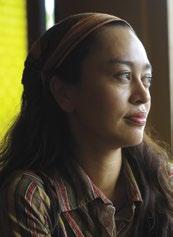
9 2024 Volume 1 | wordworks
Opening doors for healing
BY PETRA CHAMBERS
In the spring of 2020, I unexpectedly found myself at home without a job. Accustomed to working on projects full-time, I immediately enrolled in an online memoir class and started writing intensely personal stories, all day every day. As a person with post-traumatic stress disorder, this full-tilt initiation into writing memoir caused me considerable harm. Through reading the reflections of other memoirists, I learned that—unsurprisingly—writing about traumatic life experiences is often devastating. Jonathan Van Ness, whose memoir Over the Top explores the open-ended process of healing from the impacts of childhood sexual abuse, homophobia, and transphobia, explains, “if you haven't written a memoir yourself, just imagine going to therapy to discuss your deepest trauma every single morning for a year, only there's no actual therapist there to help you.”
We need to evoke the past to write about it. We relive our worst memories to get them onto the page. In my first year of writing memoir, I spent weeks immobilized on my couch, stuck in ancient loops of anxiety and grief. Occasionally, I also experienced luminous moments of insight and healing, and I decided that if I was going to write—and there’s nothing I’d rather do—I had to figure out how to transform my writing into a restorative practice. I started experimenting with strategies and found that the approaches that helped me heal also enabled me to write more authentically. Here are some of the techniques I used:
Write therapeutically, creatively
past. As a result, I frequently ended up cowering in my bed after writing sessions, wondering if I’d ever be a functional human again.
Traumatized parts of the self get trapped outside of time, reliving the most disturbing events of our lives unendingly. Telling our stories differently can help create new neural pathways and may even help with ‘restorying’ (restoring) the traumatized self.
Of course, I’m not suggesting that you lie, or that I’m careless when I write non-fiction, but simply that if you’re writing for yourself for healing purposes, you can be inventive. Try:
I started experimenting with strategies and found that the approaches that helped me heal also enabled me to write more authentically.
Writing a different ending (or middle or beginning) to your story.
Creating protective characters who intervene when the protagonist (that’s you!) needs support.
Inventing guardian ‘daemon’ characters who can give voice to what may otherwise be unspeakable. Writing your story as fiction: alter any elements you wish.
Switching to stories of safety and hope.
Approaching your material differently: paint, dance, sculpt, or create a mini graphic novel.
Choose a narrator
“Tell all the truth but tell it slant.” Emily Dickinson
Many memoirists, including Mary Karr in The Art of Memoir, emphasize the importance of truthfulness when we tell our stories. In the beginning, I took this quite literally and forced myself to describe every particular of distressing events from my
In the beginning I wrote memoir exclusively in firstperson past-tense (I ran; I cried). It was a revelation when I realized that I didn’t have to tell my stories. Of course, I still had to write them down, but a narrator could tell them. That narrator could be ironic or scientific or playful or vengeful. That narrator could tell the story in third-person present-tense (she knows; she writes), or via the observations of another character. That narrator wasn’t bound by my perspective or my lived experience.
10 wordworks | 2024 Volume 1
Experimenting with different narrators, and finding one that can tell your story effectively, is a powerful way to acquire distance and agency.
Give yourself permission to be angry
Tapping into anger—not holding back on the page—can be cathartic. We may have felt powerless in the past, but we can claim power now. Of course, anger can be volatile. Handle with care.
Don’t write
Harrowing memories are potent. They can be dangerous. The current popularity of traumabased memoir implies that our best material may be lurking in our darkest days.
Alicia Elliot challenges the belief that remembering traumatic events is necessary for recovery in the essay On Forbidden Rooms and Intentional Forgetting. “We are constantly told that we should face our traumas and work through them. This is the correct way to heal,” she writes. However, for her own healing, Elliot decided that, “little by little, and as much as I was able, I wanted to forget.”
There may be wisdom in leaving some content alone. At least for now.
Create a customized wellness plan
eating well, drinking water, and practicing good sleep hygiene. Add other beneficial stuff like connecting with friends, meditating, going to counselling, taking necessary medications, and/or attending twelve-step meetings. Make the list; do the things.
5. Make a ‘first aid’ plan. When we’re triggered, the thinking part of our brains becomes less available. A first aid plan is like a temporary external brain.
• At the top, write: ‘contact my trusted people.’ Add their names and numbers.
• Next include the numbers of suicide crisis support lines and emergency mental health services.
• Then add three or four simple self-care strategies that help you re-regulate when you’re in a triggered state.
• Post your plan in an easily accessible place.
• Share your plan with at least one dependable person.
6. Adjust course. If you get triggered, stop writing and prioritize your well-being.

I try to be as well as I can be before travelling through the sucking swamps and gnarly thickets of my life stories. My wellness plan is a preparation and maintenance manual for treks through these perilous territories.
Consider these elements for your personalized plan:
1. Set parameters. Determine what you’re ready to write about and what’s off-limits.
2. Establish a timeframe. Decide how long you are going to spend working with difficult material—twenty minutes? Two days? Three weeks? Dive in. Then set the project aside.
3. Cultivate your network. Make sure your trusted people know what you are undertaking and how they can support you.
4. Prioritize self-care. Make a list of strengthening strategies, including basic things like exercising,
Opening doors to healing
We write for all kinds of reasons, including for healing.
Writing is one of the few places where I don’t have to pretend. I can be myself: flawed and fecund; traumatized and recovering; ironic and playful. I’m a work in progress. I know I’m in good company.
Petra Chambers lives in the traditional territory of the Pentlatch people. She has been writing since 2020 and has work forthcoming with Queens Quarterly, Prairie Fire, and CV2. Her writing has been published in New Zealand, Switzerland, and the US. Her first poem was nominated for a 2025 Pushcart Prize.
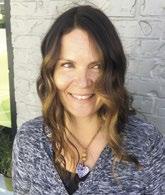
11 2024 Volume 1 | wordworks
Breaking in
BY CLAIRE FINLAYSON
Dispatches from Ray’s Planet: A Journey through Autism was released in September 2020 to a hushed pandemic world. The book chronicles a lifetime of earnest miscommunications between my elder brother and me, and my elation at discovering a logical explanation for his puzzling combination of intellectual gifts and social difficulties. It turns out Ray is located at a point on the autism spectrum that until recently was called Asperger’s Syndrome. We’d never heard of it. When we grew up, almost nothing was known about autism, especially about that subset of autistic children that Hans Asperger had called his “little professors,” and after surviving five decades without a diagnosis, Ray was a bit annoyed to have his sister lining him up against a symptom checklist and ticking boxes that “explained” him.
But he loved the way I wrote about his reverence for math—its truths are true, he says; you can’t hurt its feelings. No one owns math. Anyone is free to discover as much of it as they choose. Ray has long been a patient and dedicated tutor to struggling high school kids. Nothing delights him more than watching the light of understanding dawn in the eyes of his latest “hopeless case.” His stirring odes to mathematics make even an arithmophobe like me want to stand up and salute. But now the pandemic had deprived him of the joy of teaching.
In 2021, I presented Dispatches at the Sunshine Coast Festival of the Written Arts. I had served as a director there for ten years and, in that time, had heard scores of authors read their work, never anticipating I’d become one of them. The festival pavilion is holy ground to me, but with a dangerous virus stalking the land, the audience— previously 450 for a full house—was limited to fifty. Still, I considered it my pinnacle as an author.
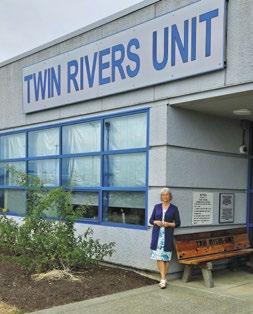
Shortly after Dispatches came out, I caught an interview on CBC Radio. Christopher Havens, an inmate serving twenty-five years for murder, had discovered a passion for higher mathematics while doing an eleven-month stint in solitary for some appalling prison behaviour. Locked in that cinder block cell, fluorescent lights buzzing overhead twentyfour hours a day, he whiled away the hours doing math puzzles— and something clicked. He was astonished by the beautiful patterns he found in numbers. “A break in the clouds,” he called it. He began teaching himself basic arithmetic.
Christopher is now a recognized math prodigy who has published original research in number theory and counts as friends some of the most distinguished mathematicians of our time. Although he still has another decade in prison to go, he has created a charity called the Prison Mathematics Project (PMP), which pairs inmates studying math with outside mentors. He wants to give other prisoners the opportunity to undergo a metamorphosis like his.
12 wordworks | 2024 Volume 1
Claire Finlayson on a visit to the Monroe Correctional Complex Twin Rivers Unit (TRU) in Monroe, Washington. Photo submitted by author.
I stood spellbound in my kitchen listening to the radio as Christopher struggled to describe what math meant to him. His words were Ray’s words. Right away, I emailed the PMP to “volunteer” my brother. As part of my sales pitch, I sent a copy of Dispatches to Christopher, who immediately invited Ray to serve as a mentor to James, a thirty-eight-yearold man who had been sentenced to life in prison when he was an addicted, homeless seventeenyear-old. Under Christopher’s influence, James had discovered a penchant for projective geometry, and Ray was a good fit for his needs. It turns out that there are—a surprise to no one—many people locked in prisons who have histories of trauma and addiction. Undiagnosed autistic men are overrepresented. My book got passed around among them. They related strongly to Ray’s lifelong bewilderment with the rules of “polite society.” Ray still corresponds with some of these men. He remains engaged, but in his own way, outside the system.
My former lock-‘em-up-and-throw-away-thekey paradigm has been flipped. I am genuinely fond of these men. I am now all for educating them “on the taxpayer’s dime” as an antidote to recidivism and a key to self-respect.
In January 2020, Christopher and his research partners published “Linear fractional transformations and nonlinear leaping convergents of some continued fractions” in a mathematical journal, Research in Number Theory. More recently, he co-authored a paper about the asymptotic approximation formula for rational convergents.
I didn’t see myself involved with any organization that contained the words prison or mathematics, much less both side by side.
This kind of thing doesn’t even scare me anymore. Neither does going through a scanner on my way into a prison. (Note: an underwire bra means a mandatory pat-down.)
Before I accepted an invitation to speak at a prison-sponsored Pi Day event in 2022, I asked what date it would be held on. I didn’t know that Pi Day is always held on March 14, since the first few digits of pi are 3.14. I’m a little embarrassed about that, but Christopher doesn’t look down on me for my lack of math literacy, and I don’t look down on him for his less-than-impeccable grammar.
The surprise is what happened to me.
Christopher asked if I’d create a newsletter for the fledgling PMP program. I was intimidated. I didn’t see myself involved with any organization that contained the words prison or mathematics, much less both side by side. But I said yes and agreed to write participant profiles. I’d confine myself to human interest stories, because that I can do.
I am now the managing editor of the PMP’s newsletter, which is mailed to incarcerated participants across the US. When assembling each issue, I correspond with convicted felons and Fellows of the Royal Society, PhD professors, murderers, crack dealers, and cryptographers. Many of my correspondents are soldiers with PTSD who do not, as one participant wryly described it, “make the transition well.” None make excuses for their crimes. They are grateful to be recognized for their hard work and accomplishments, and for the painful steps they have taken to heal from their traumas. For once, the spotlight is not trained on the worst thing they have ever done.
The work I do for the Prison Mathematics Project has blown the hinges off the doors of my former world and led me to find humanity in the darkest places. An American math genius and a sixty-six-year-old math dropout from small-town BC working together on a common project. I never saw that coming.
Claire Finlayson served as a director with the Sunshine Coast Festival of the Written Arts for ten years. As a result of her connection with the Prison Mathematics Project, she now knows that “projective geometry” does not mean throwing protractors across the room. Dispatches from Ray’s Planet (Caitlin Press 2020) is her first book.

13 2024 Volume 1 | wordworks
Collaborative writing: Opening doors through the joy of shared creativity
BY FINNIAN BURNETT
While there’s nothing wrong with the image of the tortured writer pounding away at their keyboard late into the night, solitary writing can be lonely. Co-authoring a project can bring joy to the writing process, create connections, and potentially lead to a greater chance of publication. Authors can find unique storytelling opportunities, fuel their own creativity, challenge their own assumptions, and unblock themselves from writing slumps.
When I first approached Andrew Buckley about co-writing a book, I knew we’d both be taking a big chance. We had never worked together, and we wrote in wildly different genres. But we both have a sense of the absurd, an admiration for each other’s work, and a shared excitement for exploring new ventures in our writing.
Shared creativity
Collaborative writing means sharing everything about the process. We do everything from plotting to revision through shared documents and video meetings. The

21st Anniversary
convergence of our distinct voices often results in characters or storylines we might not have come to on our own. Collaborators can draw from their individual strengths, with a result that is richer and more dynamic than what one mind alone might conceive.
Breaking through writing slumps
I tend to slip into writing slumps. The partnership introduces accountability, a motivator that can be a powerful force against procrastination and self-doubt. Knowing that another writer is relying on me brings me to the keyboard, and sharing ideas, laughing at each other’s lines, and fueling each other’s excitement about the progression of the work keeps the self-doubt demons at bay.
Greater chance of publication
In the competitive world of publishing, co-authoring can help get your work noticed. Collaborative projects often bring together authors with different networks, increasing the reach and visibility of
The Prestige Harbourfront Resort Salmon Arm, BC JOIN US
May 17th - 19th, 2024



Sessions include both skill development workshops and open forums with presenters based on questions and answers in a relaxed and intimate setting.
Presenters:
Angie Abdou
Karen Y. Barnstable
Chris Brauer
David Brown
S.M. Freedman
Conor Kerr
Robert J. Sawyer
Lorna Schultz Nicholson
Shari Ulrich
Sheri-D Wilson
Special Guest
Kenthen Thomas and more
14 wordworks | 2024 Volume 1
Find out what these published authors and industry professionals can do for you. Register at: www.wordonthelakewritersfestival.com
Check website for updates
to be encouraged, informed and thoroughly entertained. #wolwriters Lake Writers’ Festival on the
Expect

the work. The same holds for marketing, as we’re bringing our own readership to the other’s work.
Getting started
If you’re interested in co-writing, the first step is obvious. Find a partner. This stage can be like dating. Do you communicate well? Do your principles and priorities mesh? Do you trust each other?
Importantly, do you like this person well enough to dedicate a large portion of your precious time to them for what could conceivably be the next year of your life? Once you’ve found your person, establish your method of communication. Who will write which sections? How will you handle revisions? What are your common goals?
Co-authoring is not merely a shared endeavour; it’s a relationship. A few weeks into my collaboration with Andrew, I already knew I wanted to do it again. It’s like a creative marriage—Andrew brings out the best in my skill and I like to think I do the same for him.

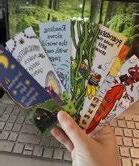
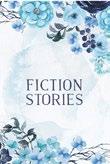
And it’s opened the door for more collaborations. I’m now writing a novella-in-flash with another author and co-authoring an academic article with yet someone else. By embracing collaboration, authors open themselves to a world where storytelling becomes a shared art, a partnership that may bring new joy and passion to your writing life.
Finnian Burnett is a finalist in the 2023 CBC Nonfiction Prize and a 2024 Pushcart nominee. Their work appears in Blank Spaces Magazine, Reflex Press, and more. Their novella-in-flash, The Price of Cookies, is available through Off Topic Publishing. When not writing or teaching, Finnian enjoys walking, Star Trek, and cat memes.
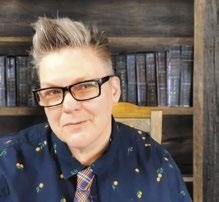

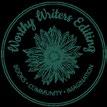
15 2024 Volume 1 | wordworks Check out worthywriters.ca/shop for these and other helpful writing resources! Courses WORTHY WRITERS ONLINE BOOKSTORE Lined-Page Journals • Digital Courses Dragon Bookmarks
Beyond the boundaries: Unraveling the mysteries of my Jewish history
BY SHARON EASTON

The discovery of my mother's last written pages decades after her death shocked me: jumbled words of hidden secrets and a life in Europe I didn't know about. A common trait among Jews is silence, and my family was no different. My European ancestors had endured hardships through the Russian Revolution, and my grandparents and mother had experienced the terrors of Nazioccupied Lithuania before narrowly escaping to rural Nova Scotia. Resorting to silence was their response to trauma and an attempt to shield me from past atrocities, but their efforts fell short. Like my family’s hidden past, my grief was invisible.
In frustration, I replaced my mother’s papers in their folder and stored everything in my cupboard.
A year later, for no specific reason, I read the pages again. This time her writing seemed clearer, so perhaps I was ready. Using my mother’s notes to write a few short stories marked the start of my journey; I never foresaw a book.
A new, intense need to share my family’s stories led to initial readings within my writing community. It was painful, because I had never spoken about my family’s history either. Close to tears, with a trembling voice, shaking hands, and an anxious stomach, I read to the end. Awkward silence followed. Then the questions came, requiring more research as they pushed me into a terrifying rabbit hole of information.
My initial research involved my Great-Uncle Nathan, a victim of the Holocaust. As I googled Nathan's name, his portrait popped up on a stranger's Facebook page. Asking about the photo prompted a conversation with the user, a German historian named Ruth who specializes in the history of the region where my family lived before World War II. Ruth told me she had received the photo years ago from my Israeli cousin.
From that moment on, whenever my research came to a dead-end, I wrote to Ruth. I gave her the details, as I knew them, of my grandmother and mother's
escape from Nazi-occupied Lithuania, and she told me their route out. Her information always enriched my stories beyond what I could imagine.
My work sank into chaos, however, while I struggled with my short-term memory impairment and a lack of experience in writing such a large piece. The writing and research were like puzzles—and my skills don't include puzzling. The frustration almost stopped me, but I stayed committed to finding solutions. I created an information wall using sticky notes. Each paper contained critical information: titles, jotted notes, research fragments, and dates. With this task done, I took a well-deserved break.
A week later, I stationed myself in front of my information wall with a notebook and pencil. Nothing happened, so I waited. Once I started moving my sticky notes around, the puzzle pieces—events, locations, and names—gradually connected. An outline for a manuscript took shape, filling me with hope and an eagerness to move forward.
The deeper I went into my research, the more alive my ancestors became. Unique personalities emerged, showing their strengths and weaknesses, opinions, quirks, and dreams. They grew into constant companions, which was peculiar for a person who didn't believe in ghosts—yet here they were. They made their pleasure known when satisfied, and their irritation clear when annoyed. Their happiness was energizing, but their anger consumed me until I resolved the offending issue and restored harmony.
Once I wrote about a resilient family that had struggled with financial difficulties. My grandfather loved these folks and had offered his support—which was turned down. Eventually, they had no alternative but to accept. As I typed, a powerful rage erupted around my desk. It was so intense, I couldn't concentrate, and I wondered what had just happened. I remembered my grandfather had never flaunted his generosity, so I promptly deleted this story of kindness. Harmony resumed. Was this negative energy my grandfather’s ghost?
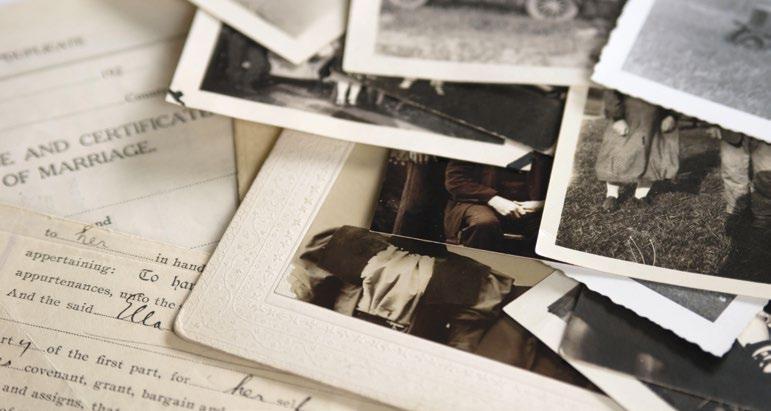
The more alive my family members became, the more I mourned their passing. I experienced all the symptoms of grief—sadness, anxiety, and depression. No one else could grasp the anguish I endured for individuals who had died decades ago, and so I grieved alone.
Fate brought me to a rabbi who encouraged me to take a class titled “Life, Death and the Hereafter.”
Despite never exploring the Torah before, I signed up. The rabbi guided me in coping with the horrifying deaths of my ancestors and honouring their memories in my daily life. A sample ritual is giving cookies to friends and family. I dedicate my baking to an ancestor and discreetly record the name of the deceased on the package—hoping that the recipient notices and asks me questions. And if not, that's okay too.
Unexpectedly, I gathered a diverse group of writers, retired editors, computer geeks, and publishers around me. A friend dubbed them Team Sharon, and it stuck. Each individual generously shared their unique abilities, which kept me on track and propelled my story forward. I am indebted to each of them. Team Sharon expanded to include my husband, daughters, grandson, and more. I reconnected with family members and friends from decades ago. I discovered family I never knew existed, and now I can't imagine my life without them. Some writers tell me that writing is lonely, but I never felt alone.
Against the advice of my team and writing community, I asked my siblings if they wanted to read my manuscript. It wasn’t courage; I needed their endorsement to move forward. Fear reigned
until their overwhelming support arrived, along with an unexpected gift—their pride. Family members commonly have their own perspectives on events, but our minor differences didn't affect their gratitude for my story. My siblings became honorary members of Team Sharon as well. After persevering through the daunting task of publishing, I took centre stage at my book launch in front of an audience of ninety-two people. My voice didn't quiver, my hands didn't shake, my stomach wasn't nervous, and there were no tears. And so another extraordinary chapter has begun: marketing and promoting my book. Unraveling the mysteries of my Jewish history has brought new possibilities and fascinating people into my life, and I am forever grateful.
Sharon Easton’s literary work Beach Moose & Amber: Finding My Jewish History marks her greatest writing adventure yet. She promotes her book and captivates audiences with original presentations while crafting her next nonfiction work. Sharon lives by the sea on beautiful Vancouver Island with her husband and two lovely labradoodles.
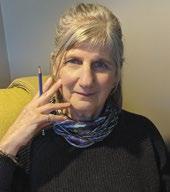
17 2024 Volume 1 | wordworks

Creating and finding writerly connection…in a brewery!
BY JANN EVERARD AND SIERRA SKYE GEMMA
When fiction writer Jann Everard and essayist Sierra Skye Gemma separately moved to the small town of Sidney, BC just as COVID-19 restrictions began easing, they were both looking to build new writing communities. Jann had moved from Toronto, leaving behind writing relationships built over twenty years and a wealth of literary events to attend. Sierra had given up her writing community in Vancouver and had yet to find “her people” on Vancouver Island.
Sierra: When my husband Chris Bjerrisgaard and I, along with our business partner, Head Brewer Jonny Kostiuk, decided to open a brewery in Sidney, BC, nicknamed “Book Town” for all of its bookstores, it seemed only natural that Small Gods Brewing Co. would become Canada’s first literary-themed brewery. The taproom space was specifically designed to host author readings and other events. Creating a positive and progressive writing community within the new walls of the brewery was among our first priorities. Shortly after we opened in August 2022, we started with the weekly “It’s Lit!
Drop-in Writers Group,” where everyone in the local community was invited to come by with a laptop or journal, grab a beer, and participate in two hours of focused writing with short breaks to socialize. As often as possible, I join the group—now built around a core of regulars, including Jann.
Jann: Finding Small Gods Brewing Co. in my neighbourhood was a stroke of luck. In the months after moving to Sidney, I was still in touch with writing friends in Toronto, but I craved in-person contact. Moving cross-country took a lot of energy, and my personal writing was stalled. The signage on the door of Small Gods caught my attention. I subscribed to the brewery’s newsletter and was one of the first regular attendees at the weekly drop-in writers’ group. Re-establishing a writing routine and meeting Sierra and other local writers helped me complete my transition to the area.
Sierra: The Small Gods Storytelling Series (SGSS) was established soon after the drop-in as a monthly (now quarterly) event that would bring together three
18 wordworks | 2024 Volume 1
storytellers to perform for a small audience in the brewery. We wanted to bring diverse voices to Sidney and set a goal to bring in readers who are Indigenous, persons of colour, LGBTQ+, neurodivergent, or writers living with a disability. We also aim to have the readers represent different genres.
Jann: Having a reading series and a place where diverse writers gather in my local community is important to me, and I’ve attended all but one of the seven SGSS events hosted in 2023. Sierra’s intentional curation of the SGSS—a mix of novelists, short fiction and nonfiction writers, and poets—has, in many instances, introduced me to voices I wouldn’t otherwise have encountered in my new hometown.
Sierra: With a Small Gods Book Club also in the works, we hired Literary Events Coordinator Sarah Grunert to help manage what had become a full roster of events. The first Book Club pick was Sub Rosa by Amber Dawn, followed by Uncertain Kin by Janice Lynn Mather, who also read at the first SGSS. By the end of 2023, a total of twenty-two guest authors had read their work, and the Book Club had discussed nine selections.
Jann: Sarah also came up with the idea for a seasonal book swap.
was the natural choice. I proposed the idea to Sierra, and she embraced it with enthusiasm.
Sierra: Other writers have since followed Jann’s example. In addition to hosting Jann’s launch in April 2024, this year Small Gods will host book launches for Dina Del Bucchia, Daniel Zomparelli, Kayla Czaga, Kevin Spenst, and Marc Perez.
Jann: The financial investment to make a space amenable to writers and readers isn’t substantial. You’ll need a microphone, mic stand, and amp. Small Gods charges $7.00 per ticket through Eventbrite to reserve a priority seat for the SGSS, while other local literary series request cash donations at the door to help offset the costs.

Sierra: That’s right! Sarah invited the public to bring in one or more gently used books wrapped in plain paper and marked with three- to five-word descriptions. Participants took turns and had twenty seconds to decide on a book and get back in line until all the books had been chosen. The time element really heightened the excitement and made it fun. Then everyone opened their books together, and people made trades if they’d already read the book they’d selected.
Jann: The Small Gods formula for creating connections through literary events worked for me. I now meet monthly with another writer to share works-inprogress for feedback. And, when an opportunity became available through The Writers’ Union of Canada, I applied for and successfully received a microgrant to mentor a children’s freelance writer I met at SGSS. As the release of my collection of short fiction Blue Runaways approached, and I needed a venue for my launch event, Small Gods
Sierra: The same events we’ve hosted at Small Gods could be easily replicated in a café, pub, or restaurant in any small community. Reach out to a favourite venue in your neighbourhood and ask them if they’d be open to letting you host a literary event during a slow time of day. Maybe suggest a oneoff event, like a book swap, to get started. Make a poster and share it on social media or hang it in the café or pub. Invite everyone you know and encourage them to share the message. If you’re willing to put in the work to get it started, you will be able to make connections among writers in your area.
Jann Everard’s short fiction collection, Blue Runaways, will be released by Stonehewer Books in March 2024. She is a past winner of The Malahat Review’s Open Season Award for Fiction and has been published in EVENT, Grain, Prairie Fire, and elsewhere.
Sierra Skye Gemma lives and works on the unceded territories of the WSÁNEĆ people as a queer writer with disabilities. Sierra is the recipient of a National Magazine Award and a National Newspaper Award. Find her online at @sierraskyegemma.


19 2024 Volume 1 | wordworks
The fine art of accidentally falling through doors of opportunity
BY ANDREW BUCKLEY

It’s the cat’s fault. A completely deranged black and white cat called Mr. Bojangles who made my life hell turned out to be the magical pixiedust-sprinkled door that led me into my publishing career. Of course, there were other things that contributed to my writing being unleashed upon an unsuspecting world, but it all started with that cat.
After receiving my first two publishing contracts in 2011, I started a now defunct podcast called Write Out Loud, allowing me to selfishly interview talented writers and

hoard their secrets like a dragon (with a sexy voice) hoards gold. I’ve grown up since then (please subscribe to my new podcast StoryCentric to hear how I just lied to you) but the lessons I learned by speaking with authors like Christopher Golden, Jane Johnson, Michael J. Sullivan, Jack Whyte, Christopher Moore, and many others shaped how I came to look at the publishing world and inspired me as to how I might try and succeed where many others have failed.
A common thread kept emerging: remain open to opportunities! In a way, somewhat absent-mindedly, I’d already started following that advice before I ever heard it. Yes, I’m talking about the cat again.
Mr. Bojangles was adopted on the advice of my then girlfriend to keep me company while attending the Vancouver Film School at the turn of the century. He turned out to be a tiny, fuzzy demon disguised as a cat, which inadvertently made him the inspiration for my first novel, Death, the Devil, and the Goldfish
A few years later, Twitter and Facebook emerged as social media platforms. No one knew what they were about or why we all became obsessed with them, but we all started tweeting on Twitter and digitally poking each other on Facebook. (Sounds filthy, but it wasn’t.) I met people on Twitter—other writers, publishers, literary agents. As an unpublished author with oneand-a-half novels completed, I was unconsciously open to any opportunities that might arise—preferably ones that would catapult me into fame and fortune. That didn’t happen (I’m assuming due to a lack of catapults), but opportunities did occur.
I met my first publisher, Curiosity Quills Press (CQ Press), on Twitter. They were simply a blog at first. I was idly tweeting short anecdotes about my cat (yes, that cat), and they asked if I had any short stories they could publish on their writing blog. And so, I published silly stories about my
cat and forgot about them. A year later the little blog site had turned into a small press, and they reached out to see if I had any novels. By that time I had two, and they signed both. Let’s hit the fast forward button.
I worked with CQ Press first as an author, then as an acquisitions’ editor. I met my first agent through them, which led to my second publisher and distribution through Scholastic Books, followed by my first ever royalty advance as part of a publishing contract. I became a successful author—in the sense that I had published work and occasionally people would buy it. But it wasn’t enough money to survive on or support a family, and so the arduous task of holding a day job continued, and I unconsciously closed myself off to new opportunities. I moved into marketing as a creative content strategist and copywriter. During that time, through sheer hatred of working a nine-tofive job, I started to dream of pursuing my own passions.
Somewhere in there, we had a pandemic that caused some minor inconveniences. But not long after, we stopped hoarding toilet paper (much like a dragon with a sexy voice). (Ho— wait, did I use that already? Sorry, but you have to admit, Benedict Cumberbatch has a lovely voice.) A year after the world shut down, I made the conscious decision to quit the day job and be truly and thoroughly open to opportunities in my writing career. And that’s all it took to turn things around. It started small. Opportunity #1: I’d done some speaking in schools as a favour to my youngest son’s teacher/librarian, and I found I enjoyed it. And then, quite unexpectedly, they paid me for it. I also applied to speak at a writing conference in Las Vegas, thinking, “there’s no way this goes anywhere.” Opportunity #2 had me on an all-expenses paid trip to Vegas for a week. And then the opportunities started rolling in: speaking engagements all over North America, people asking about co-writing, a comic book collaboration, film script writing, an online writing school, more teaching opportunities, a murder mystery storybased game, self-publishing, comedy theatre skits, my second literary agent, a podcast … Offers came in
thick and fast until I finally had to start saying, “no.” And to be clear, that’s not a bad position to be in.
Carving new neural pathways isn’t easy. Flicking that switch in my brain that constantly said “you need to work forty hours a week at a job you dislike” was not easy. But once it was flipped, and I put just a bit of trust in my own talent and work ethic and opened myself up to all the possibilities, well, there’s just no flipping it back. By shifting your perspective, being open to opportunities that are writing adjacent, and using a bit of risk assessment to decide what your time is worth, you might be surprised at how the world opens up to you. Go ahead, give it a try.
A year after the world shut down, I made the conscious decision to quit the day job and be truly and thoroughly open to opportunities in my writing career.
I’m still a published author, both traditionally and selfpublished. My first comic book will be released in 2024. I have several works in progress of my own (fiction and non-fiction), and a coauthored novel with a collaborator who I absolutely adore and intend to write with until we’re both very dead. I’m booked to speak at more than ten conferences this year in Canada, the US, and Mexico. I speak on the subject of writing and storytelling at schools and colleges, online for publishers and writing societies, at comic cons, and once even at a film studio. All this because I decided to be open to all that might be possible. And, of course, because of Mr. Bojangles. (RIP, you evil little jerk.)
Andrew Buckley is a traditionally and selfpublished novelist of rather silly, yet enjoyable fiction for all ages. He is also a comic book writer, screenwriter, podcaster, teacher, and presenter. He has a terrible habit of writing with a humorous and satirical slant despite being asked politely on numerous occasions to “please stop doing that.”

21 2024 Volume 1 | wordworks
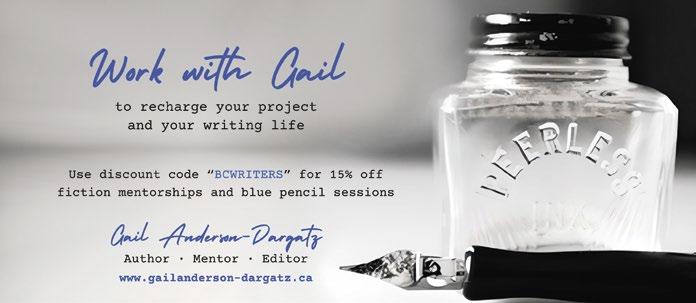
pulp Literature
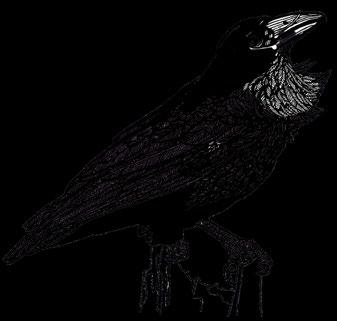

September 13-15, 2024
Calling All Writers!
The Bumblebee Flash Fiction Contest
Deadline: 15 February
Prize $300
The Magpie Award for Poetry
Deadline: 15 April
Prize $500
The Hummingbird Flash Fiction Prize
Deadline: 15 June
Prize $300
The Raven Short Story Contest
Deadline: 15 October
Prize $300
Enter today: pulpliterature com/contests
We invite experienced facilitators to submit a proposal for a workshop to be featured at our upcoming festival on beautiful Bowen Island. We will be hosting a total of eight in-person workshops on Saturday, September 14 and Sunday, September 15.
We’ll be welcoming participants who are eager to deepen their writing craft and who will be looking forward to inspiration, educational and interactive sessions.
We will be presenting an array of workshop topics covering everything from writing fiction and nonfiction, memoir and other genres — to developing technique, exploring process and getting published.
For complete information and to download an application form, please visit our website:
https://www.writeonbowen.com
CALL FOR SUBMISSIONS!
Good books for the price of a beer 22 wordworks | 2024 Volume 1

MEMBER milestones
Margot Fedoruk's foodie memoir Cooking
Tips for Desperate Fishwives: An Island Memoir was shortlisted for the Taste Canada Award in the culinary narrative category.
CB Clark's novel Forging Forgiveness placed first in the 2023 RONE Awards for best Suspense/Thriller novel. Forging Forgiveness is her eighth published novel.
Jude Neale has just published a collaborative book called Water Forgets Its Own Name, which consists of a series of paintings and responses to pictures of Bowen Island, BC.
Joan Boxall's latest piece “Tsawwassen First Nation Youth Centre: In Style with Coast Salish Tradition” recently appeared in Canadian Architect Boxall profiles artisans working in their element, such as principal architect Dr. Nancy Mackin.
In January, Sarah Boon signed a contract with University of Alberta Press to publish her science memoir, Meltdown: The Making and Breaking of a Field Scientist.
Micki Findlay received an honourable mention from the Van Isle Poetry Collective Contest for her memoirinspired poem “These Hands.” The poem has been published in the Collective’s latest volume of poetry, along with four of her award-winning photographs. Catherine McNeil recently won first prize for her book of poetry Emily & Elspeth in the 2023 First Annual Sunshine Coast Writers and Editors Society Book Awards for BC Authors.
Alline Cormier has had a monthly film review column in Island Woman Magazine since June. Last fall Boulevard Magazine published “Umbrella Gnomes” and Blank Spaces published her short story “The Victoria Collective.”
Marie-Claude Arnott’s memoir Biography of a Friendship will be released in March by the Tule Publishing Group. This is the story of a friendship, of the ebb and flow of life and its conundrums, of love and its complications, and of the unexpected outcome of the author’s loss and transformative journey.
23 2024 Volume 1 | wordworks
Launched! New titles from FBCW members

Beasts of Bowen Island: Nexwlélexwm
Louise Loik | Bowen Island Conservancy | November 2023 | 9781777124717 | $20
This Discovery Guide introduces island amphibians and reptiles with key points, anecdotal evidence, citizen science, and work by local artists and photographers. Great for schools and adults.


Back in the Days
Addena Sumter-Freitag | North End Girl
Productions | July 2023 | 978-0-9730644-1-4 | $16.00
A book that will change your sense of here, and will eclectify your sense of self, wherever and whoever you are. “... bold-faced, broad-based, and takes up a space in Canada that has to be re-raced.”
A Theory of Expanded Love
Caitlin Hicks | Brown Posey Press | April 2023 | 979-8-88819-100-2 | $19.95 US (paperback)
The astute observations of a little girl from a big Catholic family in 1963. “Enough charm to fill the corridors of Vatican City twice over.” —Foreword Reviews



The Palimpsest Murders
Reed Stirling | Books We Love, Inc. | September 2023 | 9780228626237 | $15.00
On the seventh day, the body of one of our cycling group was discovered in a canal. “Fitting entrance to Styx,” one erudite observer opined. True, but that was just the beginning.
Dream House
Cathy Stonehouse | Nightwood Editions | September 2023 | 9780889714625 | $19.95
A long poem in six sections, Dream House is wry, surreal, and deeply affecting.
Mini Saga in South Africa
Hilary Crowley | Friesen Press | July 2023 | 978-1-03-918175-5 | $21.23
This travel memoir recounts exciting adventures and explores the political landscape of Apartheid South Africa. Mini Saga is a testament to the importance of grasping every available opportunity.
24 wordworks | 2024 Volume 1




Better Next Year (anthology)
JJ Lee | Tidewater Press | November 2023 | 978-1-990160-27-1 | $24.95 (paperback) | 978-1-990160-28-8 | $15.95 (e-book)
Recollections from acclaimed Canadian authors and emerging voices in an anthology that debunks the popular depiction of Christmas while delivering messages of hope and renewal.
The Sum of One Man's Pleasure
Danial Neil | NeWest Press | September 2023 | 9781774390788 | $22.95
1963—Finn Kenny fled Ottawa after being implicated in an RCMP purge of suspected homosexuals in civil service. He is offered sanctuary on an estate on Vancouver Island, but the past soon finds him.
Here With You: A Memoir of Love, Family, and Addiction
Kathy Wagner | Douglas & McIntyre | September 2023 | 9781771623667 | $26.95
The powerful story of a mother’s struggle to save her son from addiction—and the strength and hope for change that she found in her grief.
Scorch Mark (A Dark Dreams Novel)
JP McLean | November 2023 | 978-1-988125-66-4 | $22.99
In this spine-chilling supernatural thriller, Jane Walker must convince a skeptical cop that there are supernatural forces in play—before a lethal chain of events engulfs them all.




Soul Healing: Breaking the Chains of Past Life Influence
Carole Serene Borgens | Waterside Productions | October 2023 | 978-123456-78-9 | $23.95
Have we experienced wounds in past lifetimes that are imprinted on our souls? Our souls travel with us through lifetimes; if we heal unresolved past hurts, we can heal present challenges.
with feathers
Cynthia Woodman Kerkham | Kalamalka Press | August 2023 | $20.00
with feathers is a suite of prose poems which takes meditations on diverse birds as its centring focus with sometimes playful and sometimes stirring turns towards history and memory in each piece.
Let It Be a Good Life
Meighan Klippenstein | October 2023 | 978-1-03-919565-3 | $16.49
This collection of free verse poetry unravels the delicate layers of the human experience.
Portugal Calling: poemoirs
Franci Louann | Ekstasis Editions | September 2023 | 9781771715027 | $23.95
Franci Louann had a writer’s studio in Loulé in Algarve province in 2010. Franci reports on personal and family events, and we also hear about Portugal’s most famous poets.
25 2024 Volume 1 | wordworks




Hidden Behind the Mist of Arrow Lakes
Lucia Mann | September 2023 | 978-0985603977 | $24.95 (paperback) $12.95 (Kindle)
Based on real events, the novel weaves together an intricate web of connections between Russia, England, Germany, and Canada—a tapestry that binds the Holocaust’s history.
How To Make a Killing Jar
Ace Baker | Chicken House Press |
August 2023 | 978-1-990336-54-6 | $18.99 (paperback) $8.99 (e-book)
Always compelling, sometimes irreverent, often shocking—a powerful collection of 12+1 stories by Ace Baker.
Lies Are Forever
C. Jean Downer | Bella Books |
December 2023 | 978-1642474893 | $9.99-$26.00
To solve her case, Sloane West must accept a crash course in witchcraft. Will she embrace her power as a protector—or flee from the birthright she’s only beginning to understand?
Wolves & Girls & Other Dark Gems
Maria Haskins | Brain Jar Press |
July 2023 | 1922479500 | $20.50 (paperback) $6.99 (e-book)
Thirty-eight weird and wonderful stories featuring werewolves, lost girls, shapeshifters, ghosts, and more. Precise, gloriously dangerous, and always dark— every tale is a jewel to be treasured.




Sonnets from a Cell
Bradley Peters | Brick Books |
September 2023 | 9781771316132 | $22.95
From riots to mall parkades to church on Sunday, Sonnets from a Cell is poetry reaching out for moments of longing, wild joy, and grace.
Siege of Herons—Collective Nouns Alphabetically
Ramona Wildeman | April 2022 | 9781777766726 | $25.00
Twenty-six collective nouns illustrated and arranged alphabetically.
Writing With Your Muse: A Guide to Creative Inspiration
W. L. Hawkin | Blue Haven Press | January 2024 | 978-1739059149 | $18.99 US (print)
Written by an award-winning author, Muse includes workshopped techniques, tips, stories, and examples to help you get your words on the page and awaken your creativity.
His Last Companion
Sophia Conway | October 2023 | B0CKH3VPHN | $1.49
His Last Companion is a thoughtprovoking introspection of the human experience and the intimacy between the last man on earth and the one companion who has been by his side since birth: Death.
26 wordworks | 2024 Volume 1




Churchill's Ferret
Glenn Ashton | October 2023 | 9798861039222 | $38.00 US
A young British woman is stalking Adolf Hitler. Commander Charles Burton knows the Germans must not find out she is British. And time is running out.
Kindred Web (Book 3 of Kindred Chronicles)
Denelda Bendsen | February 2023 | 978-1-7782613-0-5 | $10.99 (print)
Angela Penner risks everything in this tangled web which challenges her teenaged twins. Will they have the courage and maturity to succeed where their mother failed?
The Life and Times of a Poet
Marlo Browne | September 2023 | 979-8854242639 | $33.78
The Life and Times of a Poet is the 4th poetry collection from Barbadian poet and author Marlo Browne.




Emily & Elspeth
Catherine McNeil | Caitlin Press | February 2023 | 978-1-773860992 | $20.00
Catherine McNeil’s queer love story is a delightful romp through Mexico & Hardy Island, BC. Her poems flirt with intersections of desire, art, and commitment. Weird, wonderful, and slightly dangerous.
Apasanka (English version)
Camila Reimers; English translation
by Lidice Megla | Cristalida Ediciones | November 2024 | 978-2925 321897 | $10.43
Apasanka is the story of women who go beyond generational, cultural, and social lines in search of their identity and life’s purpose.
Scattered Snowdrops
Kamal Parmar | November 2023 | 978-0-9867199-3-6 | $20.00
Contemplative, restorative, and transcendent—this book is a call to blossom and breathe. A welcome addition to your coffee table.
Reckoning
Helen Webster | SILVERDOG Publishing | October 2023 | 978-1-7778995-6-1 | $25.95
Reckoning, the last book in the Lucy Trilogy, completes the story of Lucy, who realizes that the only way she can move beyond the terrorizing events of her past is to face her deepest fears.
Death by Crow
Rosemary Rigsby | November 2023 | 978-0-9939361-7-3 | $15.00
Nathan is an angst-ridden teenager who has visions, and lately they have become terrifying. Cait must help him, but she must also come to terms with her own visions and the terms of her new job.

27 2024 Volume 1 | wordworks
The last word: The hallway of locked doors
BY MICHELLE BARKER AND DAVID BROWN
Querying literary agents and publishers can often feel like you’re standing in a long hallway filled with locked doors. No one wants to face rejection, but this is a place that all writers must visit if they’ve set their sights on traditional publishing. You may need to stand (or sit) in this hallway for a very long time—certainly longer than you’d like.
The importance of realistic expectations
Agents have their pick of hundreds or thousands of queries per year. Of those, they tend to sign no more than five to ten new authors. Those are not great odds.
Moving from impossible to possible isn’t just about persistence. We frequently see the advice that “you just need to keep querying and eventually you’ll find an agent who connects with your work.” Sadly, that’s often not true. Few writers land representation for their first manuscript. That’s because mastering the novelist’s craft involves a lot more than hitting a word-count goal and then typing “The End.” Some say you need to write a million words before you finally figure out how to immerse and engage readers.
But even with daunting odds, you should still send out queries for your first manuscript. For one, it’s good practice. And the only way to measure whether your work is landing is to invite rejection.
The art of embracing rejections
We recently came across a great blog post on LitHub by Kim Liao. She recommends aiming for one hundred rejections per year. This approach shifts the focus from seeking immediate success to embracing the process of growth and learning. With each rejection, you are amassing experience, refining your craft, and increasing the likelihood of finding the right match for your work.
But don’t aim for one hundred rejections on the same manuscript. Write some short stories and send them out. Try your hand at poetry. Apply for grants and residencies. The more attempts you make, the better your chances of eventual acceptance. Each rejection is a step closer to that one “yes” that will unlock one of your hallway’s many doors.
Beyond the hallway
Querying is more than just a phase of trial and error. It's a period of growth, a test of patience, and an opportunity to hone your craft.
Even though you may spend a long time in the hallway of locked doors, stay active. That is to say, this is not a waiting room. Enroll in workshops and courses to refine your skills. Strengthen your network, which might mean building your platform or connecting with potential critique partners and beta readers. Most importantly, keep writing.
Every locked door in this hallway has the potential to swing open, leading to new opportunities and successes. The key lies in persistence, continuous learning, and an unyielding passion for storytelling.
Michelle Barker and David Brown are award-winning writers and senior editors at the Darling Axe, which offers narrative development, editing, and coaching. Learn more at darlingaxe.com.


28 wordworks | 2024 Volume 1
the last word WITH THE DARLING AXE 28 wordworks | 2024 Volume 1
ACCESS TO Contest Bank
Health and Dental Program
Mailed WordWorks Magazine
Member Book Love
Writers’ Socials
Writing Circles
Join over 1700 fellow writers today!
DISCOUNTS ON Author Photo Day Contest Entries
Recorded Events
ReadON Newsletter Ads Workshops
Writers’ Summit
Writing Intensives
REPRESENTATION IN Launched!
(New Book Listings)
New Online Member Directory
Learn more at bcwriters.ca/benefits
hello@bcwriters.ca BENEFITS
membership
